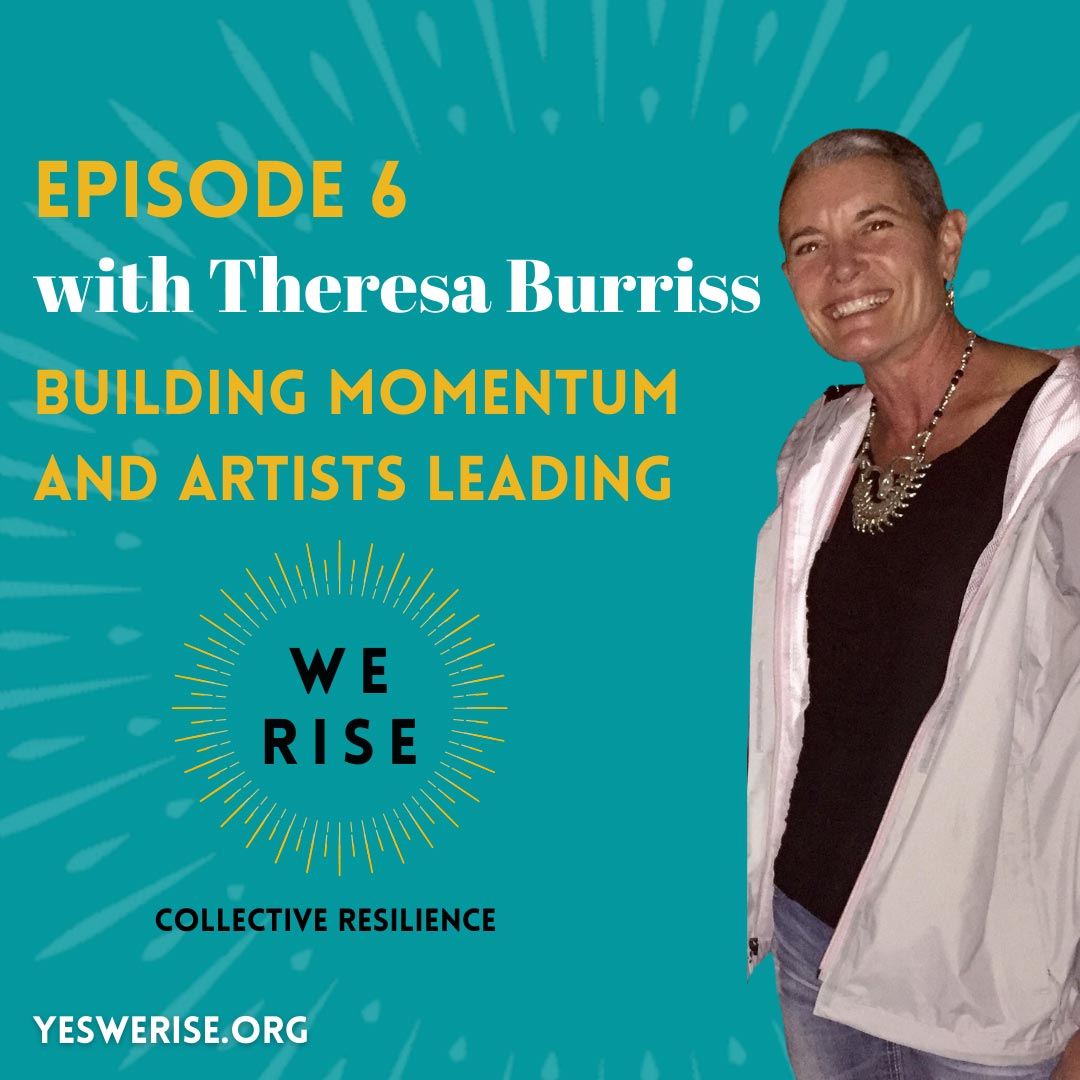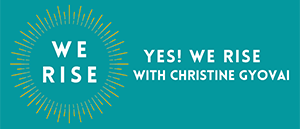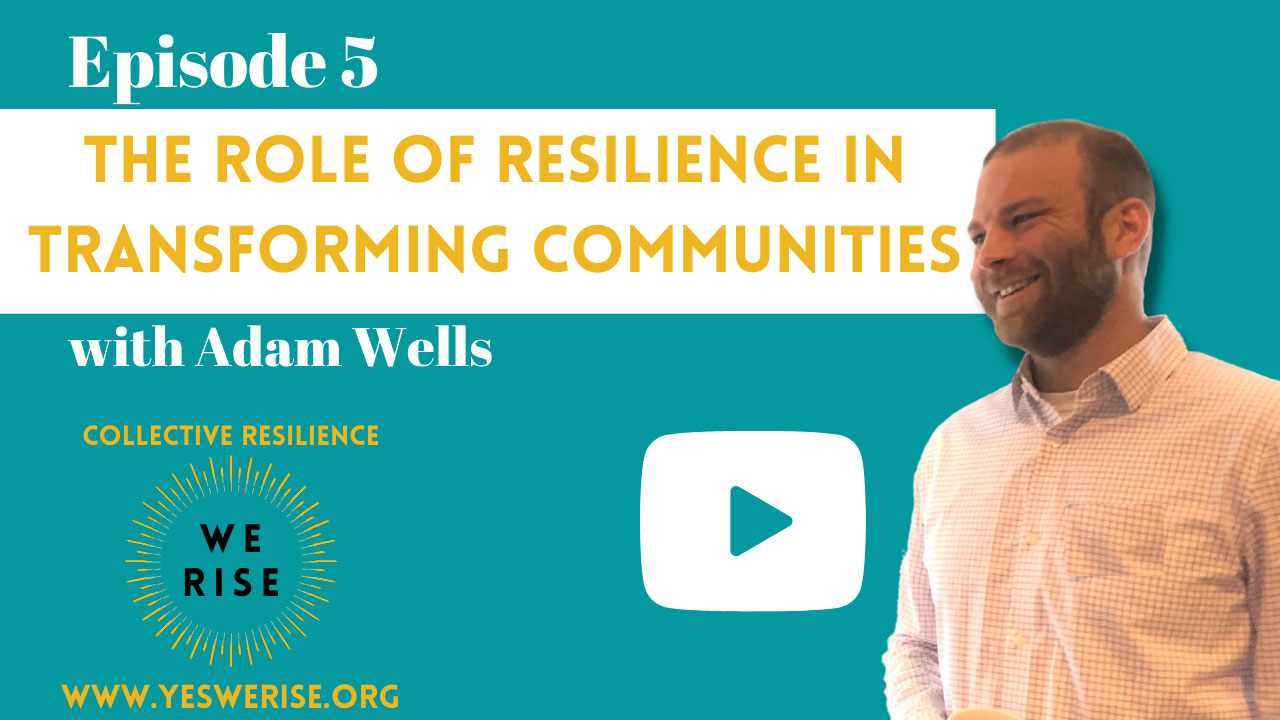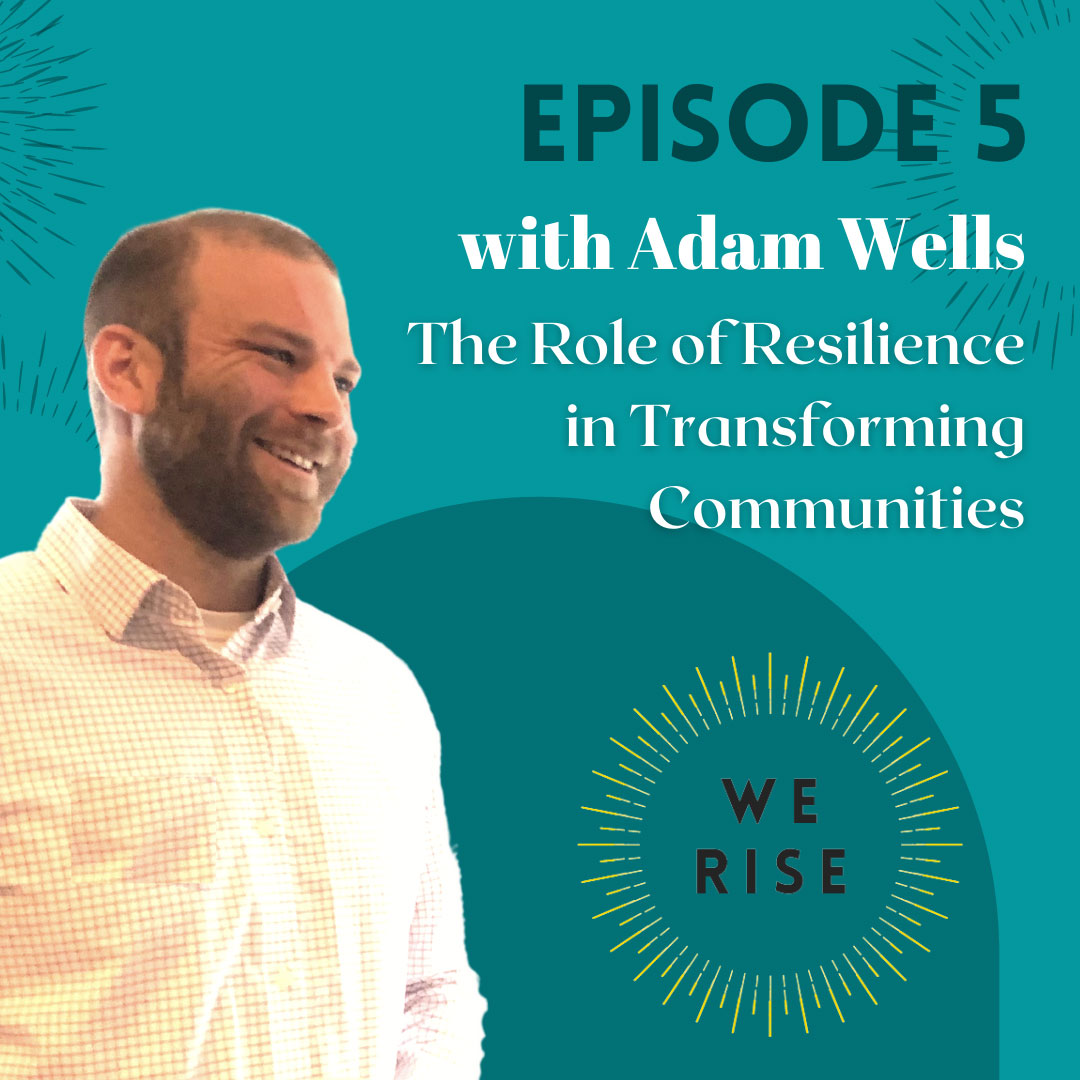
Episode 5:
The Role of Resilience in Transforming Communities with Adam Wells
Episode 5 Description
In this episode of the We Rise podcast, Christine is joined by Adam Wells, sharing the resilience of many Appalachian communities. Adam dives into the importance of reckoning with pain to create a new future and the importance of listening and sharing all voices and experiences when creating a new vision. Adam shares what it takes for a community to truly succeed.
Adam is the Regional Director of Community and Economic Development for Appalachian Voices, and his career has included environmental justice, activism, new economy, and solutions-based work. He and his wife Emily live in Southwest Virginia, raising their two young children, Ruby and Sawyer.
Download the show Notes
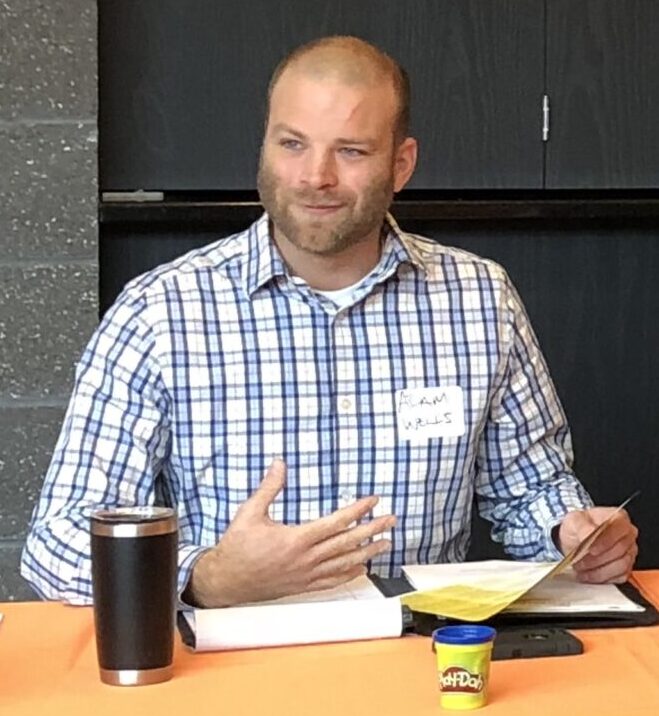
Adam spent much of his developmental years moving around, but always found security and grounding in Wise County where his family has been for generations. Wise is located in the center of Southwest Virginia, one of seven counties nestled in a historic coal mining community.
After finishing his undergrad at Appalachian State, he moved back to Wise. During this time, Adam was a Southern Appalachian Mountain Stewards fighting mountaintop removal in coal communities, working as an environmental justice organizer, doing activism work and solution-based work.
Adam began working with Appalachian Voices in 2015, as the Regional Director of Community and Economic Development. He oversees both the New Economy Program and the Central Appalachian Program. New Economy works on economic and community redevelopment opportunities, while the Central Appalachian program works to mitigate the impacts of negative economic, social, and environmental impacts of the coal industry. In his work, Adam has observed first-hand the change taking place throughout Appalachian communities.
find us on youtube
Key takeaways
Appalachian resilience: Reckoning with the pain of the past to create something new
While the coal industry was still a main economic source, there was resistance from the coal mining communities to look at other means of generating profit. Officials would lose elections if they even broached the topic. As the collapse became intolerable, there was a collective reckoning with the role of the coal industry moving forward. This acknowledgment allowed a safe space for economic transition conversations to take place.
From the individual, to the professional, to the leadership level, there is now an acceptance and understanding that coal no longer has the same cultural or economic impact that it once had, though many readily share that it has been the lifeblood of communities for generations. This acknowledgment and sense of urgency has been the catalyst for forward movement and momentum. Over the past five years, Adam has observed communities working with each other across the state and over state lines to create something new.
It sometimes takes a sense of despair for a person or a community to be willing to step into the discomfort of something different. When these shifts do begin to happen it is important to retain an appreciation for the past, while having a vision for the future. This helps you continue to move forward, heal from the pain of the past, and feel gratitude for where you came from.
Taking a vision and making it reality, from one community to the next
Towns that have had the most taken from them are the ones who had the most extraction from the coal industry. As the coal industry has declined, these towns have been left worse off than some neighboring communities, which are often closer to highways and resources. This loss of income leads to a decline in tax revenue, making provisions for the town such as garbage removal difficult to secure. It additionally makes it hard to attract and retain elected and/or civil leaders due to the inability to adequately fund the positions.
Getting government support first requires a functioning local government reaching out. If that doesn’t exist within a community, then outside resources are not brought in to support them. Coordination and cooperation through rural and urban communities can help one another thrive. One way the inner Appalachian communities can begin to receive support is through the flourishing of the outer towns.
An anecdotal example of this is from the community of St. Paul. They have successfully executed a new environmental, economic, and business plan over the past twenty years. The result is a thriving economic and business community. Their prosperity has now also begun having a positive impact on the town of Dante, located 15 minutes further into the mountains. Dante has since acquired resources, leadership, and momentum in actualizing their community vision.
In order for a vision to become reality, communities need resources, federal and state funding, philanthropy, and a plan. Money is important in accomplishing endeavors within a community, but simply having the funds is not enough. Communities need the means and the support to realize a vision for the long term.
The importance of representation and justice when creating something new
When talking about a resilient transition, Adam is passionate about leaning into the uncomfortable and even messy parts of economic and community development. Communities need to be asking why certain voices haven’t been heard or represented in the past. They also need to address how to make sure all people and communities are brought into the conversation moving forward. This will ensure that transformation and progress happens equally for all; otherwise, it will not last.
Adam believes in meeting people where they are, listening long and well, being honest and upfront if and when there is an agenda, and being responsive to their needs. When given permission, it is also a necessity to share these stories with the greater community through blogs, newspapers, comments, and other avenues.
Appalachian Voices go into the homes and communities of people to listen and capture their stories. With permission they share these important experiences with others to create awareness and promote a just transition. For this to happen, the individuals, families, and communities who have given and lost the most for the greater community, need to be the first to benefit from the new plan. This requires a thoughtful and deliberate approach.
Helping to break a cycle of injustice is uncomfortable, and takes intentionality. The gift of this hard work though, is that when true equity exists, everyone is able to thrive and prosper. This ultimately lends to the entire community’s success.
notable quoteS from aDAM WELLS
“If we really want a resilient transition that sticks and works, we’ve got to do a better job of leaning into the messier parts of economic and community development, bringing in voices that haven’t been at the table. And asking, ‘why haven’t they been at the table?’”
“The same strength that allowed our region to thrive can help us in the future, and it should be looked at. It’s a part of our story and shouldn’t be abandoned just because the economics of the coal industry has shifted.”
Links/resources mentioned
Southern Appalachian Mountain Stewards
Dante, Virginia Community Association
MountainRose Vineyard in Wise, Virginia
The Yes! We Rise podcast is produced by Dialogue + Design Associates, Podcasting For Creatives, with music by Drishti Beats.
Please rate, review, and subscribe to the podcast so we can continue spreading our message far and wide. Find our email list at the website: www.yeswerise.org.
Thanks for listening.
Don’t miss an episode — follow us on Spotify and subscribe via Apple Podcasts, Stitcher, or Google Play, and please leave us a review wherever you listen.
Jump to:
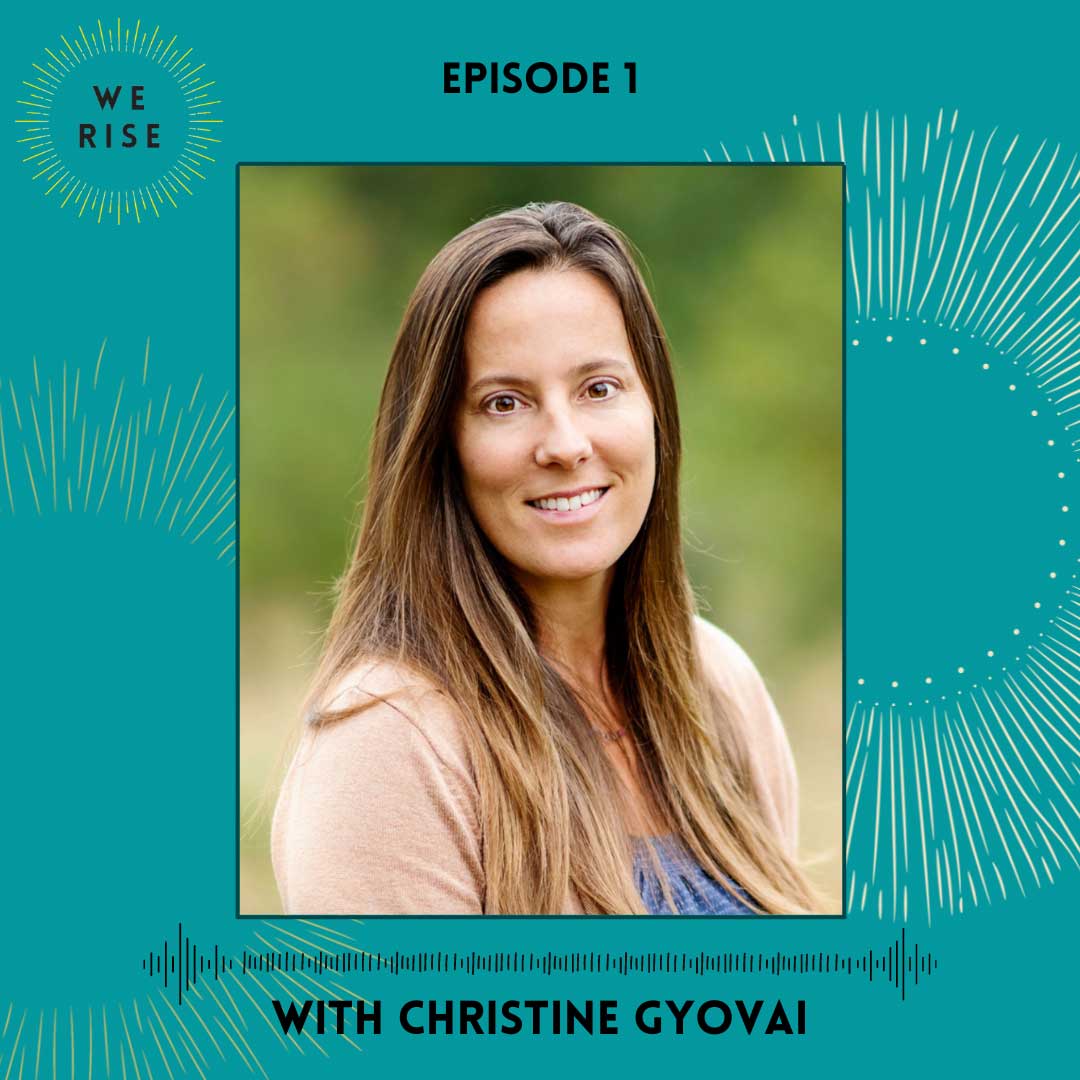
Episode 1
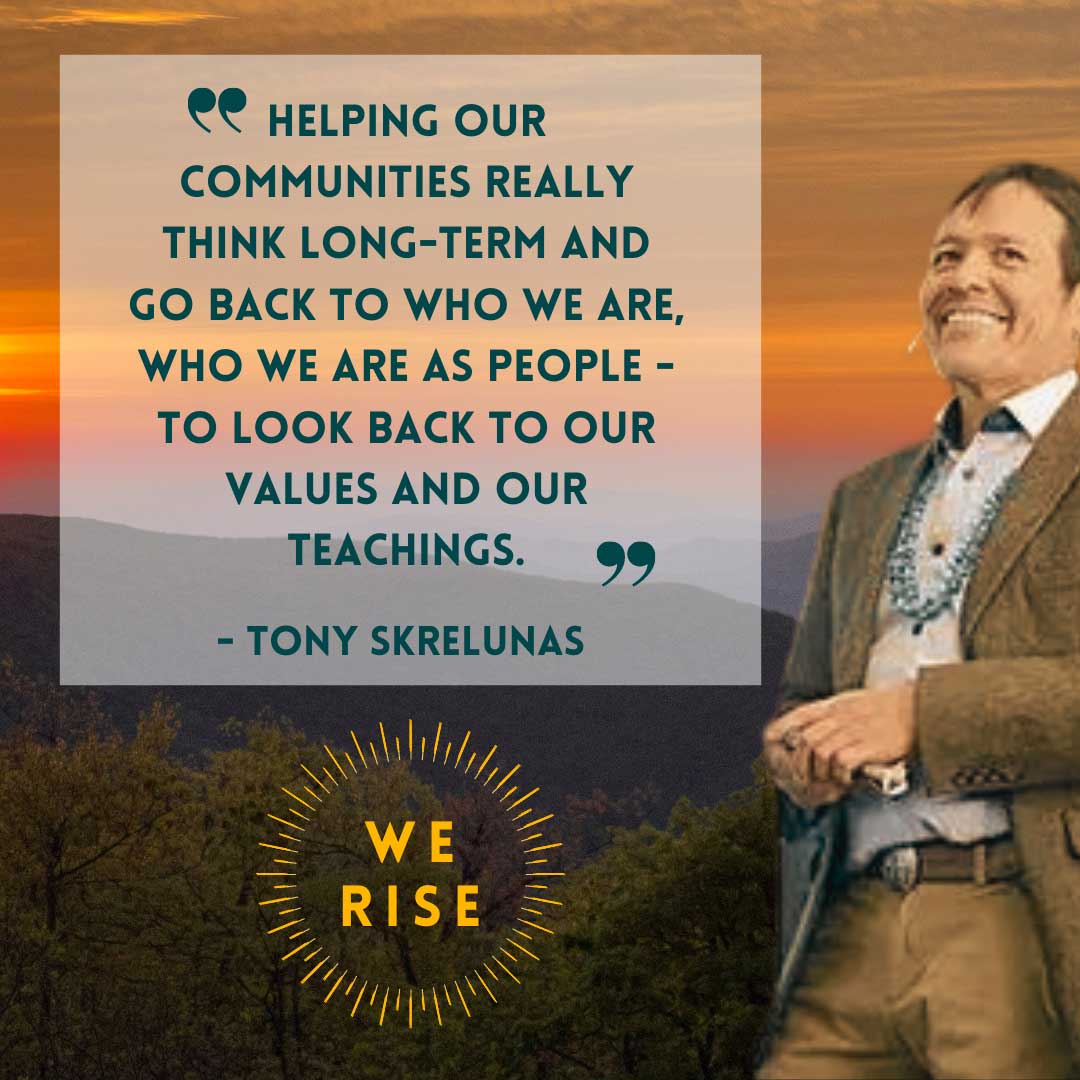
Episode 2
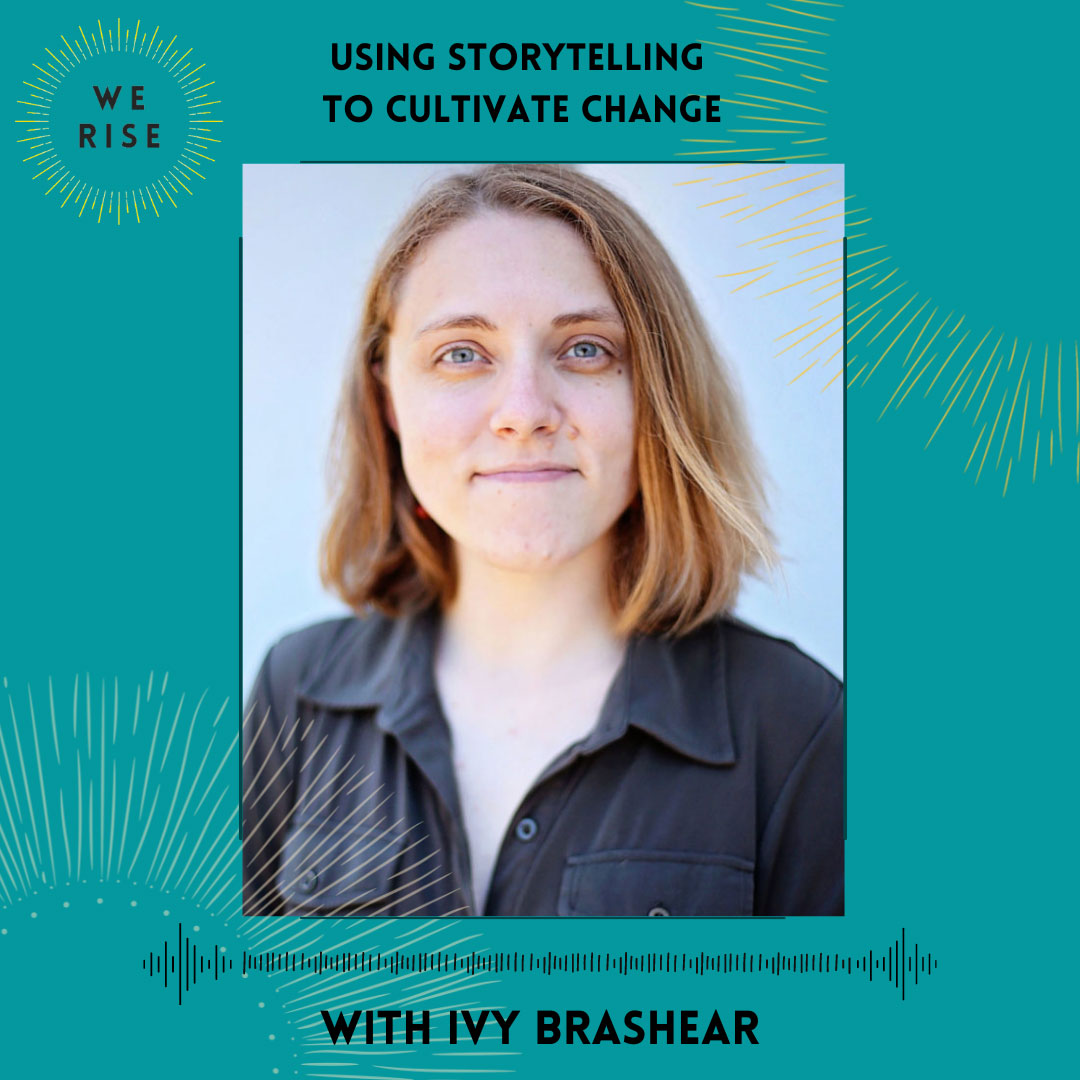
Episode 3
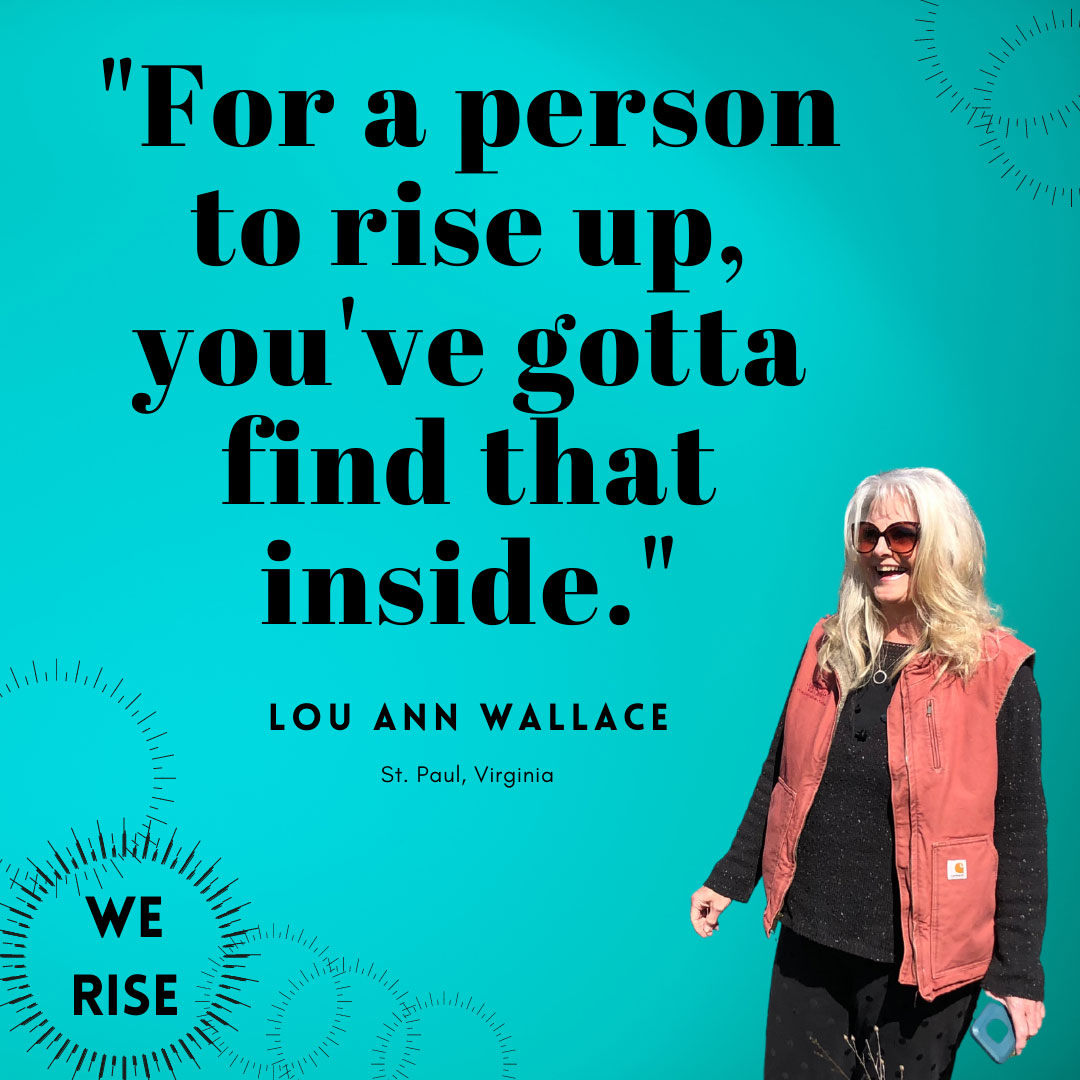
Episode 4

Episode 5
